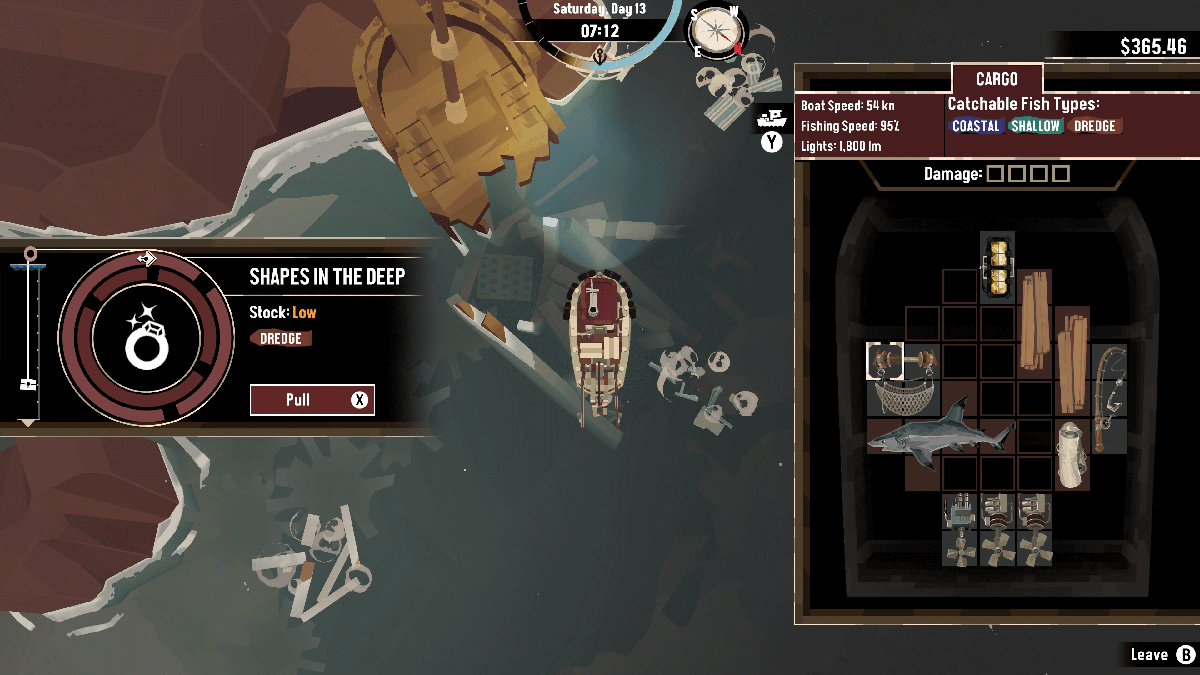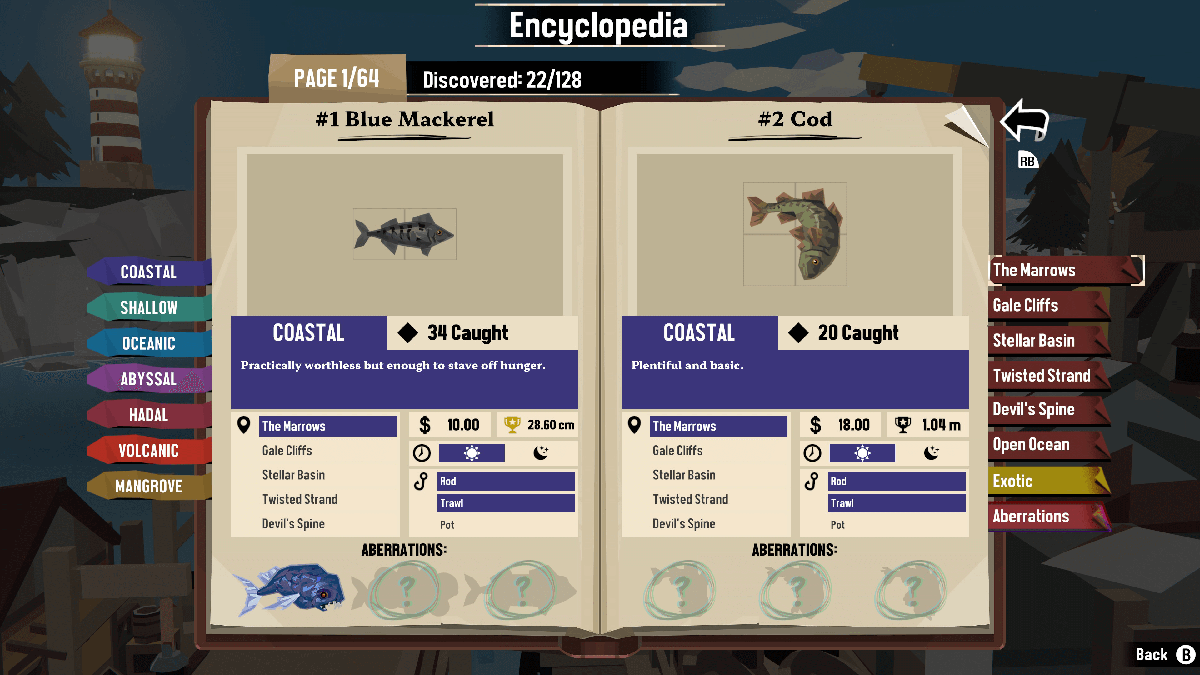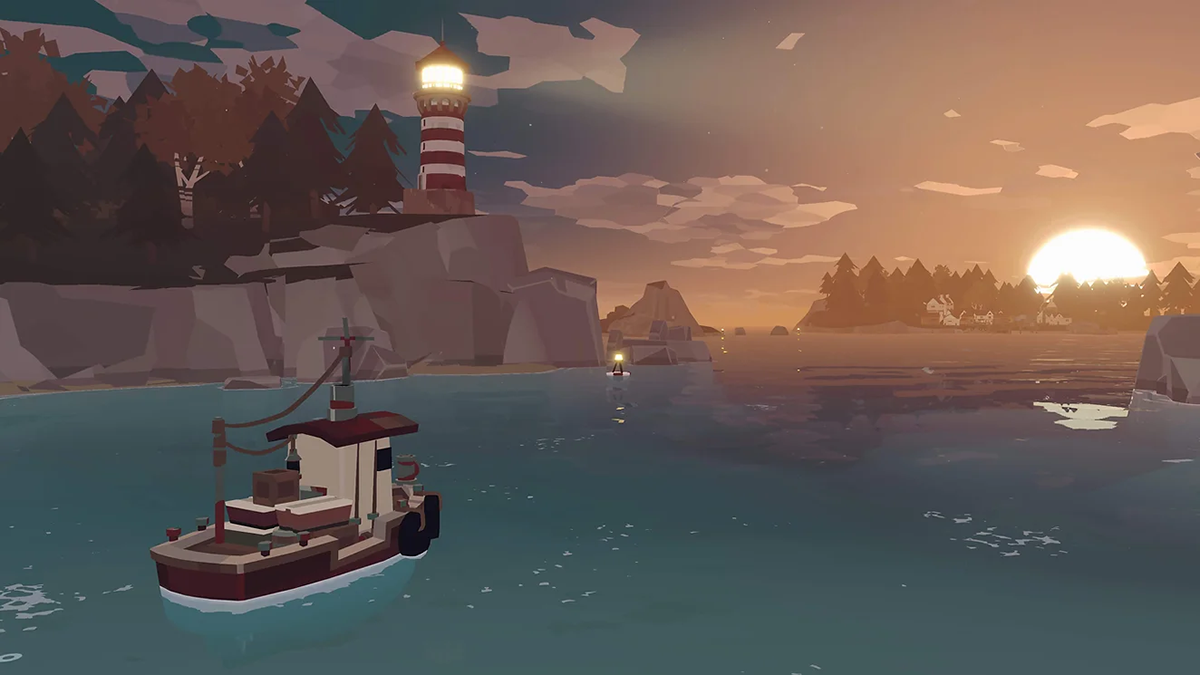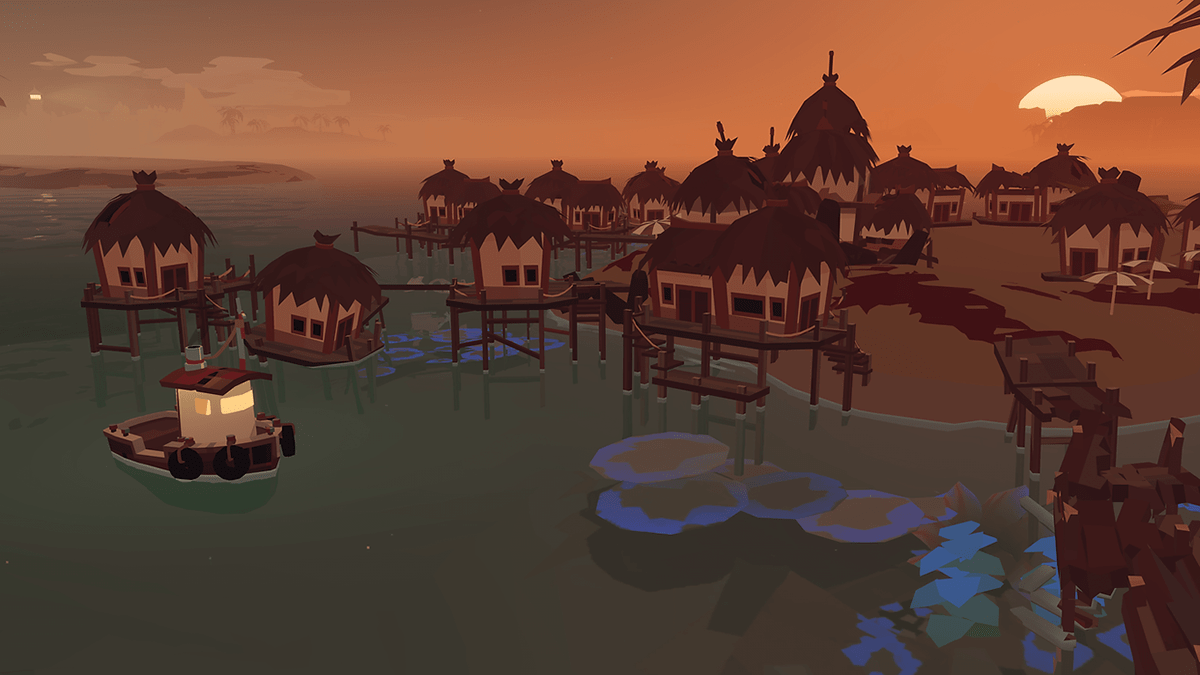Was there ever a time when fetch quests didn’t plague every single game with a big map? I honestly can’t remember. My most vivid distant memory of crossing items off a dumb list is tied to Elwynn Forest, the starting location for human characters in World of Warcraft. But the “go away for five minutes to pick up apples or something” tasks have always been there. We simply buried those memories because they were boring. And Black Salt Games’ Dredge has brought them up to the surface because it succeeds at making me want to go out there to pick up scraps and catch fish over and over again.
There’s this unwritten rule about game design that dictates that, once you give players some freedom and break out of the linear mold, secondary and optional content have to be a thing. And whenever a non-linear game refuses to implement such things, they’re called “experiences” or “walking simulators.” Real games have “real content,” whatever that means.
Some might argue the trend of adding tons of pointless chores to open-world games is modern, but the truth is that some genres had always behaved in similar ways. Think of your average classic Final Fantasy installment. If random mob encounters weren’t a thing and cookie-cutter NPCs didn’t send you on trivial errands, those games wouldn’t be long at all. In fact, a modern entry like Final Fantasy XV (which I only half-enjoyed) probably packs more meaningful content than most, if not all, of the older entries. Is it good content though? That’s an entirely different conversation.

Image via Black Salt Games
What I’m getting at is that repetitive trips to the countryside to pick up shrooms and herbs are nothing new. Actually, they’re a very small part of the many problems of the generic open-world bloat we have to face too often if we’re into free-roaming games. But this recurring annoyance can be made slightly meaningful, at least. In the case of Dredge, I’ve been pleasantly surprised by how much it achieves with so little and leaning hard on literal fetch quests. What’s the secret sauce?
Real life is full of repetitive tasks and daily chores too, so I believe in making fetch quests better over not having them at all, especially when the main goal behind a vast project happens to be making the game world feel as lived in as possible. The last two mainline Elder Scrolls entries and Red Dead Redemption 2 come to mind as excellent examples of using fetch quests to tell more about the world and its inhabitants, as well as to enrich the genuine role-playing experience.

Image via Black Salt Games
I might be wrong, but those games seemed to actually care about making every system feel like a crucial part of the bigger whole. A common problem with fetch quests and tangential mechanics such as crafting or repairing stuff is they often are just an extra step thrown into the mix to mine more engagement out of players. In recent years, I’ve stared at my screen way too many times thinking, “Well, this crafting / progression system is just a more dynamic menu.” When there’s no risk-reward layer, some kind of reaction from the game world, or actual exploration, chores become… chores.
On paper, Dredge sounds like a literal sea of fetch quests, and yet… it hits the nail right on the head. The entire game is about fishing, talking to weird folks, and dredging the bottom of the sea to recover trinkets. But, oh boy, the stuff that connects the timed and often stressful tasks is exquisite. None of it would work without an excellent narrative hook and the thickest atmosphere I’ve waded into recently, but those devs sure knew how to play their cards right. Hell, even our Yahtzee enjoyed it.
Dredge’s presentation doesn’t even allow for engaging cutscenes or set pieces, so I care about going out there and rushing back to shore when night falls to sell my fish and to keep unraveling the archipelago’s darkest secrets because the writing is just good. But of course, the actual game would still be annoying if the moment-to-moment experience weren’t at least mildly entertaining. Thankfully, Dredge’s minigame-based fisherman simulation is quite fun and, even more important, breezy. There’s always something going on, someone new to meet and please, some little mystery to figure out. In a way, the entire thing becomes an obsession as the in-game days go by, and soon, you’re just another NPC stuck in that damned corner of the ocean.

Image via Black Salt Games
The NPC-ification (?) the player undergoes as Dredge sinks its claws deep into their mind makes me think, oddly enough, about grindy live-service games too. Game tickles funny part of the brain, and brain goes brrr. Of course, Dredge is nothing like Destiny 2 (mainly because the former actually ends after a while and that’s it), but they both are perfect examples, in completely different ways, of how to turn players into compliant “workers.” So I’m guessing it all boils down to the carrot hanging from the stick being enticing enough versus offering a box full of carrots.
Then again, PowerWash Simulator is a huge indie hit and thinks having a story is for nerds, plus cheap sim games that make laborious jobs even more annoying are on the rise (just ask Germany), so what do I know? Maybe, one day, someone smarter than I will figure out how gamers’ brains work.






Published: Apr 22, 2023 11:00 am